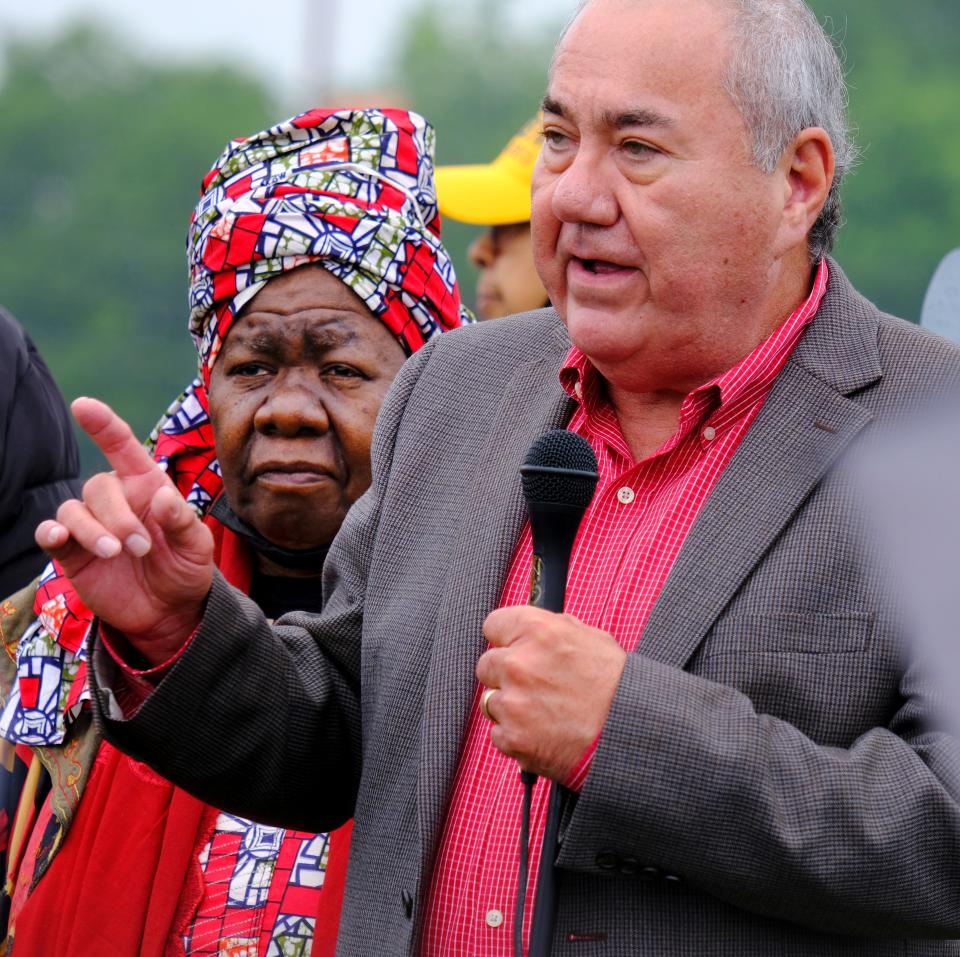Is the Osage Nation on a reservation? One court says no, but McGirt question isn’t settled
An Oklahoma district court ruled earlier this week that the Osage reservation no longer exists.
The decision sets the stage for what could become a long legal process to resolve whether McGirt v. Oklahoma applies to the land promised to the Osage Nation.
“The goal is not to stop in the district court here in Osage County or to stop in the Court of Criminal Appeals in Oklahoma City,” said Osage Principal Chief Geoffrey Standing Bear, who is also a longtime attorney. “The goal has to be to go up to the United States Supreme Court.”
'Sovereignty is on the ballot': Oklahoma political candidates weigh in on McGirt

The Osage ceded land in present-day Missouri, and later Kansas, in exchange for a northern Oklahoma reservation established in 1872. Standing Bear and the tribe’s attorneys want Supreme Court justices to formally bat down a 2010 federal appeals court ruling that found the Osage reservation went away after Congress allotted the land to individual tribal citizens and recognized Oklahoma as a state.
Justices previously declined to hear the case, and the decision became the backbone of an Osage County District Court order issued Aug. 29. Judge Stuart Tate concluded “as a matter of law and fact, that the Osage Reservation has been disestablished.”
The Oklahoma attorney general’s office had argued in court filings that the 2010 case settled any questions about the status of the Osage reservation long before the Supreme Court decided McGirt v. Oklahoma in 2020.
The landmark ruling determined the Muscogee reservation still existed, which meant Oklahoma no longer had the power to prosecute criminal cases involving Native Americans on those lands.
Attorneys for the Osage Nation contended the McGirt ruling — which stemmed from a state criminal case — sets precedence for state courts, not the 2010 federal appellate decision. They also pointed to differences in the cases: The more recent McGirt decision involved criminal matters, while the older case was a civil tax dispute.
The backdrop for the tribe’s and state’s arguments is an ongoing criminal case in Osage County, which shares the same boundaries as the Osage reservation. Dustin Phillips, a Cherokee Nation citizen, asked the judge to dismiss the state’s 2019 domestic assault case against him, citing the McGirt ruling.
Tate declined in his Aug. 29 decision. Douglas Dry, a Tahlequah attorney who represents Phillips, said his client will likely appeal, but is deciding at what point to do so.
A Muscogee tribal citizen appealed her Oklahoma taxes after McGirt: Here's where her case is now
In the two years since the McGirt decision, state courts have expanded the ruling over the Cherokee, Chickasaw, Choctaw, Quapaw and Seminole reservations.
It could eventually grow to cover several more tribal reservations in Oklahoma. But in December, the state’s highest court for criminal appeals ruled that McGirt should not apply to the reservation shared by the Kiowa, Comanche and Apache tribes in southwest Oklahoma, because the court found that Congress had dissolved the tribes’ reservation in 1900.
All the legal questions tied to the McGirt decision, as well as the Supreme Court’s recent follow-up ruling in Oklahoma v. Castro-Huerta, will likely take years to resolve, tribal leaders and attorneys have said.
Standing Bear said he expects the Osage Nation case to eventually make its way up to the Supreme Court, regardless of how the Oklahoma Court of Criminal Appeals rules in the next phase of the appeals process.
“We would like to have our original reservation boundaries that we were promised in 1872. We would like to have those recognized, and that’s what we’re seeking,” Standing Bear said.
Molly Young covers Indigenous affairs for the USA Today Network's Sunbelt Region. Reach her at mollyyoung@gannett.com or 405-347-3534.
This article originally appeared on Oklahoman: Oklahoma judge says Osage reservation no longer exists; appeal likely

